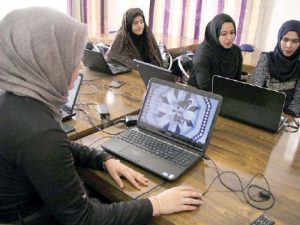There is now a new lending programme for young people.
A revised plan includes new components, such as loans for agriculture and microfinance.

The administration declared on Monday that the prime minister’s interest-free and subsidised loan programmes for young entrepreneurs will be resuming. Over the past five months, the programme has been briefly paused and altered to better serve agriculture and small enterprises.
State Bank of Pakistan (SBP) stated in an announcement on Monday that “the amended scheme has incorporated two new components of funding, namely micro-loans and agriculture loans.”
The programme offers financing in three instalments of up to Rs. 7.5 million each at subsidised interest rates ranging from 0% to 7% for a maximum of nine years. The application form will clearly mention the processing duration, which will not be longer than 45 days.
According to the SBP notice, “women borrowers will receive 25% of the loans.”
The programme, formerly known as the Prime Minister’s Kamyab Jawan Youth Entrepreneurship Scheme (PMKJ-YES) by the Pakistan Tehreek-i-Insaaf (PTI) government under former prime minister Imran Khan, has been renamed as the Prime Minister’s Youth Business and Agriculture Loan Scheme (PMYB&ALS) by the coalition government of the Pakistan Muslim League-Nawaz (PML-N). Previously, the coalition government had suspended the programme beginning on July 1, 2022, after taking office in April 2022.
The central bank said on Monday that “the government of Pakistan has authorised modifications in the essential characteristics of PMKJ-YES.” Following the official introduction of the programme by the Prime Minister’s Office, “eligible borrowers may apply for loans through the PM Youth Portal,” it stated.
According to the projections offered by SBP, the finance division shall distribute funds in the budget for each fiscal year. Payments will be made following the SBP’s quarterly submission of consolidated claims from all the banks. It has been recommended that banks, DFIs, and microfinance banks (MFBs) prepare their systems for the proper implementation of this programme and “to avoid any misuse of the programme.”
The notification noted that “The Prime Minister (Youth Affairs) Office may appoint a firm to audit, analyse, and monitor the programme.”
Up till June 2022, the financial institutions have given 29,977 youth entrepreneurs a total of Rs51.70 billion. The outstanding (net) financing for the month was Rs45.37 billion.
The central bank reports that as of June 2022, 42,652 applications totaling a total of Rs70.66 billion in three slabs for the subsidised loans have been granted. According to the most recent announcement, “All individual Pakistani citizens with entrepreneurial potential who are between the ages of 21 and 45 and possess a Computerised National Identity Card (CNIC) are eligible to apply.”
The minimum age requirement for IT/e-commerce-related firms will be 18 years old, and matriculation or an equivalent educational certificate will be required.
Businesses, including partnerships and corporations, are only required to have one owner, partner, or director who falls within the required age range. Young people-owned small and medium-sized enterprises (SMEs) that are both starting up and operating are also eligible.
According to SBP’s “Indicative Credit Limits and Eligible Items for Agriculture Financing 2020,” farmers will be categorised according to their kind in the case of agriculture.
Three tiers have been established for the loan’s magnitude. Eligible borrowers may purchase up to Rs. 500,000 apiece at no interest under Tier 1 (T1). Borrowers may purchase amounts beyond 500,000 rupees and up to Rs1.5 million under tier 2 (T2) at a 5% subsidised interest rate.
Under tier 3, they are permitted to borrow up to Rs7.5 million at a 7% subsidised interest rate (T3).
T1 and T2 borrowers are obliged to contribute 10% of the project’s total cost in cash (or immovable property of equal value). For borrowers who fall under T3, the equity to debt ratio would be 20% to 80%, respectively. The funded term for the authorised loans will not exceed three years, and payback will be made in equal monthly instalments. The term of a crop loan may be up to one year, and repayment will be made in one lump sum at or before maturity, in accordance with the growing season.
For long-term/development loans, the financing period for T2 and T3 will be up to eight years, with a maximum grace period of up to one year. The notification states that the maximum term for working capital, production, and murabaha under T2 and T3 will be five years.
Working capital and production loans from banks will be a possibility; only markup will be due during the first two years. Following that, the principle and markup will both be repaid during the following three years, bringing the total repayment time to five years.
All industries and goods are eligible to purchase loans. All agricultural and non-crop industries in agriculture, such as cattle, poultry, fisheries, and dairy, are also eligible.










































